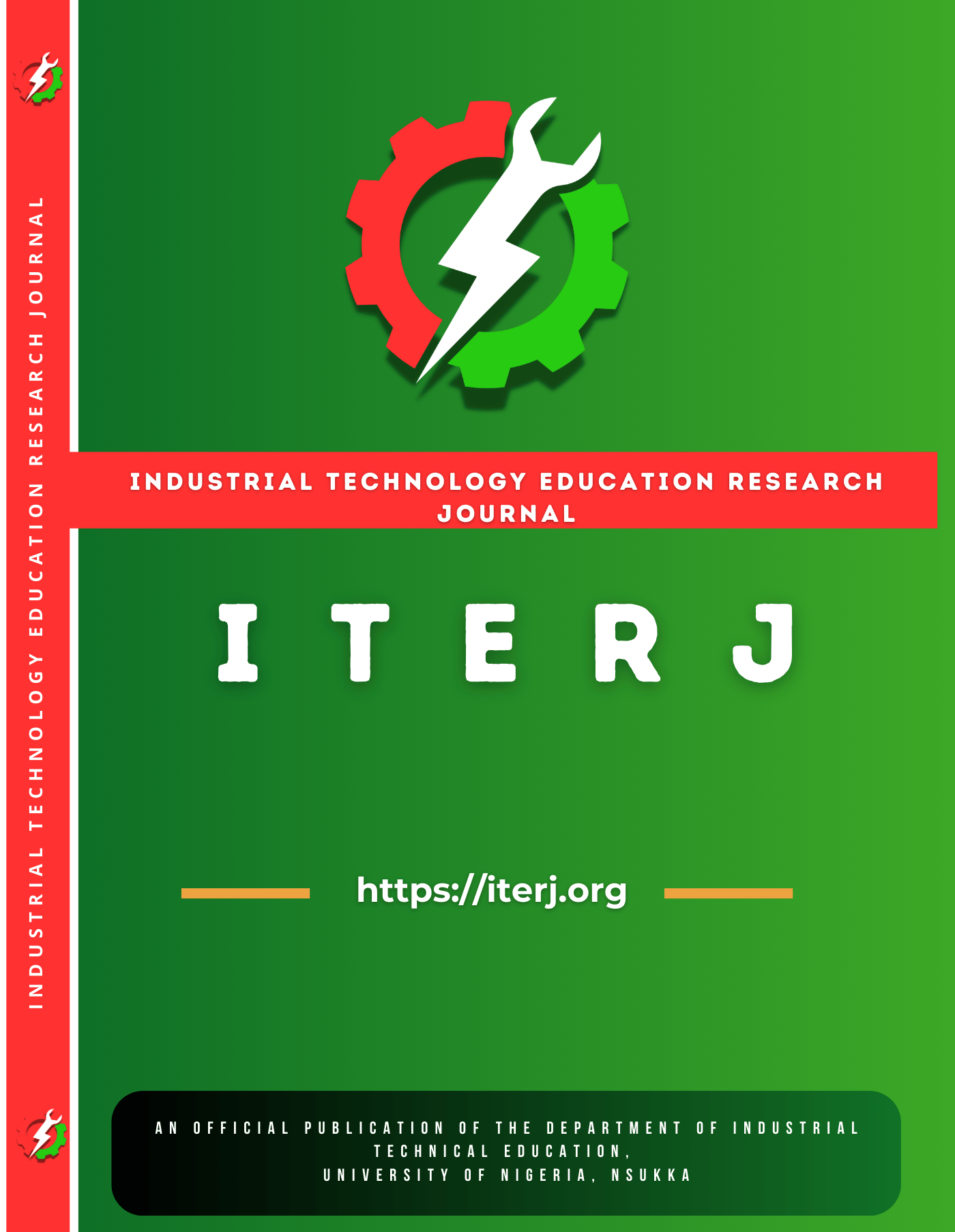Application and Sustainability Factors in the use of Artificial Intelligence inElectrical/Electronic Engineering Telecommunication Instructional Delivery in North-Central Nigeria
Keywords:
Sustainability Factor, Artificial Intelligence, Telecommunication, Instructional DeliveryAbstract
This study investigated the application and sustainability factors in the use of artificial intelligence in electrical/electronic engineering telecommunication instructional delivery in North-Central Nigeria. Three research questions guided the study, while three hypotheses formulated were tested at a 0.05 level of significance. The study employed a correlational research design and sampled all 123 teachers teaching telecommunication in the study area. A structured questionnaire was used as the instrument for data collection. The instrument was validated by three experts from the University of Nigeria, Nsukka, and trial tested. The Cronbach Alpha reliability method was used to determine the reliability coefficient of the questionnaire items, yielding a value of 0.89. The study found that: (i) a relationship exists between AI application and sustainability factors in electrical/electronic engineering telecommunication instructional delivery, (ii) a relationship exists between the application and use of artificial intelligence in electrical/electronic engineering telecommunication instructional delivery, and (iii) a relationship exists between sustainability factors and the use of artificial intelligence in electrical/electronic engineering telecommunication instructional delivery. It was recommended, among other things, that teachers should adopt sustainability factors in the use of artificial intelligence and that the government should promote the application and use of artificial intelligence tools for teaching electrical/electronic engineering telecommunication in tertiary institutions.








